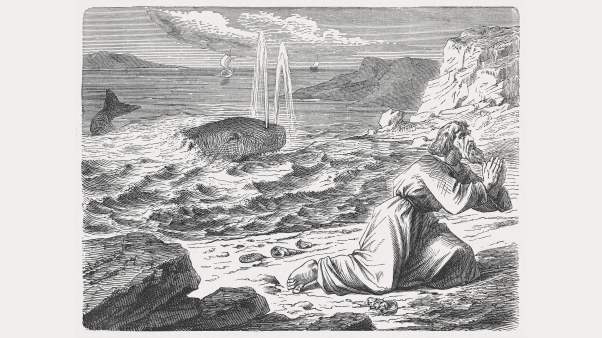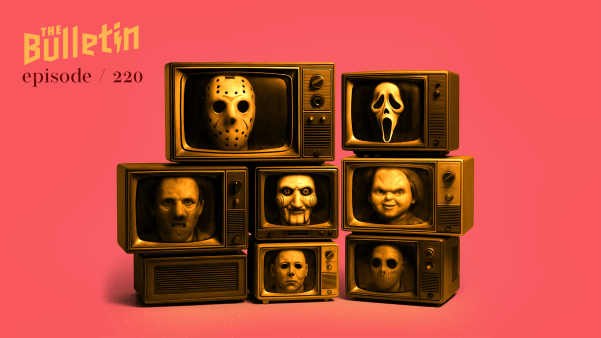 We all come from "someplace," and my past—a childhood with a raging and unpredictable father—shaped and nearly broke me. The crushing chaos I lived through as I grew up defined who I became, forming me into a person who assumed that both Father God and men in general were angry or displeased with me. I have a deep chasm inside me filled with self-loathing. I ricochet off people presuming rejection. I stiff-arm intimacy and am instinctively wary. I am restless and uncomfortable in my own skin.
We all come from "someplace," and my past—a childhood with a raging and unpredictable father—shaped and nearly broke me. The crushing chaos I lived through as I grew up defined who I became, forming me into a person who assumed that both Father God and men in general were angry or displeased with me. I have a deep chasm inside me filled with self-loathing. I ricochet off people presuming rejection. I stiff-arm intimacy and am instinctively wary. I am restless and uncomfortable in my own skin.
And so, after 20 years, my husband, Tom, still speaks to me with delicate care, with regard for where I come from. Sadly, I sometimes still hear him through a filter of expected meanness even though he treats me with kindness. Being raised in devastation shaped me, but Tom has learned to make allowances that give me room to change. Throughout our marriage, this trust has been paramount.
But it wasn't always like this between us. This is a story of love—and of how I became a falling-down drunk.
How it all began
It began innocently. As I struggled with pain and self-loathing, I discovered that alcohol turned off the looping accusations in my head. With a glass of wine, I forgot how much I hated myself. So Tom and I would occasionally relax with a glass of wine after work, not asking if there were healthier ways to unwind. As the years passed, Tom drank moderately while I fell into a pattern of drinking past the buzz. For the most part, life was good—we had rewarding jobs and four amazing kids, friends, and community. My husband and I were raising a blended family with the usual struggles and joys. Still, over the decade of alcohol abuse, there were many times when I knew something was terribly wrong. I would cycle back and forth from joy to despair, from centeredness to complete dislocation.
Looking back, I see that my addictive behavior didn't actually start with alcohol. There were signs soon after our third child was born when I left my career to be at home. In my working life, out of feelings of insecurity and fear, I usually toiled longer and harder than everyone around me. Until I left the job, I didn't realize how hooked I had become on the high of adrenaline and the feelings of significance it generated.
It was then, over a period of about seven weeks, that I slid into an intense, black depression. The spiritual doubts I'd previously avoided began to stare me in the face. I realized I didn't know Jesus' grace and mercy in a life-transforming way. Was I a charlatan working at a Christian ministry? Or sitting in church Sunday mornings nursing the world's worst hangover? I was full of self-loathing and shame as my duplicity grew; still, some part of me wanted and needed to hang on to faith.
Alcohol became another attempted fix for the colossal hole in my heart. Sitting at home each day staring at the four walls closing in, I felt indignant and smothered. To have no "important" roles at work or at church made me feel I was no longer needed. As little as I knew about alcohol dependence, I knew even less about major depression. Nothing could have adequately prepared me for what was happening to me. Perhaps innocently at first, I began self-medicating with alcohol, only worsening the cycle of hopelessness.
Sometimes I began to drink in the early afternoon, so by the time we put the kids to bed I was "too tired" to read to them—something I used to cherish doing. That memory causes a well of sadness. When I was in the grip of alcohol, I lost sight of my resolve, my sweet children and husband, and our life together.
Tom felt helpless as he watched my addiction develop over many years. At my worst, he pulled me stumbling out of parties. His role became one of protecting me and our kids, as he wiped up my puke and put me to bed. For years he showed me a selfless love.
Half-hearted (and short-lived) sobriety
There was more than one time over that decade when I knew I needed help. The first time I went to counseling, it was primarily an intellectual exercise. I was certainly concerned, but I was not yet the sloppy, falling-down drunk that I would become. After five months of therapy during which I had remained sober (it was a requirement), my counselor and I agreed: I was an alcoholic.
But I wasn't ready to quit.
I suggested the idea of just drinking socially and not keeping alcohol in the house. Her response? She said she'd likely see me back in two or three years. I remember saying, "At least I'll enjoy the next three years." In that moment, I could not picture my life without alcohol. I chose to keep drinking.
It only took a year. At first I did moderate some, but soon it was just as she predicted: I was drinking daily. The pull became relentless. Once I began actively drinking again, I found I had to drink more to get the same effect. Although I had quit for those five months, when I started again my body wanted as much as my last worst binge. I slid more and more quickly into alcoholism as preoccupation with drinking became the dominant narrative.
Soon I drank to drunkenness, falling into bed at the end of the day. If Tom brought up my drinking, I was defensive and angry. In those years of steady, hard drinking, I gave up on the idea of God loving me unconditionally. How could God not be angry and disappointed with me?
Asking for help (and not recieving it)
I will admit, the church didn't always respond to my struggles with grace. Once I whispered a shaky prayer request to a small group of women at a Bible study: "I'm afraid I'm drinking too much." I was desperate enough to risk the confession. I don't know what I expected, but it certainly was not the wide-eyed, silent stares. That's when I decided it wasn't safe to talk about my drinking at church. Their silence reinforced my self-condemnation. It was eight more years before I finally quit.
Over the years, I brought up my drinking habits with my doctor, a spiritual advisor, more than one therapist, and with various family members. Either they too had little knowledge of addiction or they just couldn't face it. Most of them probably wanted to assume the best.
Gradually my Christian friends drifted away. I wasn't giving much back. I was consistently drinking to drunk, with memory loss and blackouts. I was in and out of deep depressive periods and once, after taking 17 pills "just to sleep for a while," I was hospitalized. The night before that incident, uncharacteristically, I hadn't been drinking—and that saved my life.
Popular 2014 Marriage and Sex Articles:
"Fighting for Control" by Mary Goodrich
"The 'Good Wife'" by Ann Swindell
"How I Ruined My Marriage" by Elisabeth Klein
"Guidelines for Christian Sex" by Dr. Juli Slattery
"When He Has a Headache" by Dorothy Greco
A love that intervenes
All those years, Tom was in survival mode, concerned with my drinking and worsening depression. Life for him became about caring for our four kids when I was unable to do so, all the while working a demanding job.
Finally, in the summer of 2008, after things had progressed to an intolerable place, Tom wrote me a letter of ultimatum. Our astonishing God was already at work in me, despite the drinking. Otherwise that letter, which outlined the ways my excessive drinking was destroying me, our marriage, and our life together, might have broken up our marriage. Tom faced the fearful possibility that I would be defensive or angry and refuse to quit. Interventions are an incredibly courageous and loving act. Those who love the addict or alcoholic have no neat and tidy guarantees.
It is breathtaking for me to think how much Tom loves me. He was losing me to drunkenness, yet he showed love with both his longsuffering and his gentle care. Telling me that he couldn't take it any longer was an act of selfless love.
That is what it looks like to love a drunk: a long span of time filled with patience and sacrifice followed by one stunning moment of courage.
Selfless, life-changing love
After drinking a bottle of wine alone the night before, I woke up scared. God had been graciously preparing my heart for weeks, perhaps years. And that day Tom's letter and my own readiness collided, becoming the catalyst I needed. I was ready. That was our miracle. That is what it looks like to love a drunk: a long span of time filled with patience and sacrifice followed by one stunning moment of courage.
There were no guarantees, but Tom never gave up on me. When we pledged to love one another, in sickness and in health, neither of us knew what that covenant meant. To love a drunk is to love any sinner hanging on to their life. I come back to the love described in 1 Corinthians 13 again and again. In light of my own battle with alcoholism, this passage says so much about real love. Love never gives up even when you just want "a normal life." An alcoholic is one for the rest of their lives, whether they quit drinking or kill themselves abusing, so love has to prepare for the worst but never give up hope. Love won't keep a score or throw shame in the face of the drunk. Love takes pleasure in the slow flowering of truth which is a gradual openness, in part due to longsuffering understanding. Love gently wipes vomit from a loved one's face. Love trusts God always and looks for goodness over and over in a person you don't recognize, remembering the person you do love. There will be times when you won't want to go on, but love does. Love goes on.
I will forgive myself, one day, for the pain I caused my loved ones. And my father, who has passed away, deserves my forgiveness too. But it is enough today to receive mercy and grace from God and my husband. Our story is a love story, and we all know they don't always work out perfectly—but I'm grateful that ours has so far. I've been sober for the past six years. I know I will never be fully recovered. I can never drink again. I accept that and know the truth that I am only sober one day at a time.
Subscribe to TCW at this link, and sign up for our free e-newsletter to become part of a community of women striving to love God and live fearlessly in the grit of everyday life.
Melody Harrison Hanson has been gratefully sober since 2008, and she writes essays and poetry about faith, addiction, and justice. Connect with Melody on her blog at www.LogicAndImagination.com, or find her on Twitter @MelodyHHanson.
Soul Surfer, the inspirational true-story movie about surfer Bethany Hamilton, exceeded studio expectations by pulling in $11.1 million over the weekend – good enough for fourth place overall at the box office, but finishing first in the per-theater average ($5,014, compared to $3,848 for Arthur, $4,861 for Hanna, and $3,438 for Your Highness) among new releases.
“We’re thrilled with the response,” said Rich Peluso, vice president of Affirm Films, a branch of Sony Entertainment, the film’s distributor. Peluso noted that a rare A+ CinemaScore, strong exit polling (96% rating the film Excellent or Very Good, 92% saying they will recommend it), and strong Facebook and Twitter activity all point “to a strong and long theatrical run. What’s most exciting about all this is that the inspirational message of Bethany’s life and faith is impacting people all across North America, and we’re looking forward to expanding the release in other territories in the coming weeks and months.”
Blogging for the WSJ’s Speakeasy, Anthony Kaufman said the film “exceeded expectations” and is “poised to go the distance in the marketplace.” Kaufman’s story also noted that the promotional team behind Soul Surfer had done a good job reaching out to Christian opinion leaders and church groups, while also trying to make it “a crossover film” and to “achieve a balance and not to make it seem like only a faith movie,” according to Berney. “I think it was effective. Given the Cinemascore and exit polls, we think it’ll hang around for a long time.”
Deadline.com analyst Nikki Finke wrote that an exec from distributor Sony had said, “If we do $10 million this weekend (or close to it), it would be a home run for Sony and FilmDistrict.” Finke went on to write: “Mission accomplished. A strong Christian message sometimes works at the box office, sometimes falls flat. This one worked, helped by the strong appeal and personal promotion of American Idol winner Carrie Underwood. Soul Surfer played incredibly well all around the country as Sony had been screening the title aggressively – 350 previews – especially for church groups who arranged for buses to bring in audiences all day Friday.
“The film was marketed extremely well by FilmDistrict by emphasizing the upbeat, positive message although not overtly its religious undertones even though Soul Surfer is the only mainstream movie with a faith-based message during the Easter holidays. Key targets were tweens, teens and moms, and the film tracked well with these groups, and direct engagement was made with Underwood’s fan base, extreme sports enthusiasts and athletes who had overcome personal obstacles.”
Box Office Mojo analyst Brandon Gray noted that Soul Surfer‘s opening “was solid considering that surfing movies tend to wipe out. It was enough to land within the average range of inspirational sports dramas. Distributor Sony Pictures’ research showed that 80 percent of the audience was female and 56 percent was under 25 years old.”








